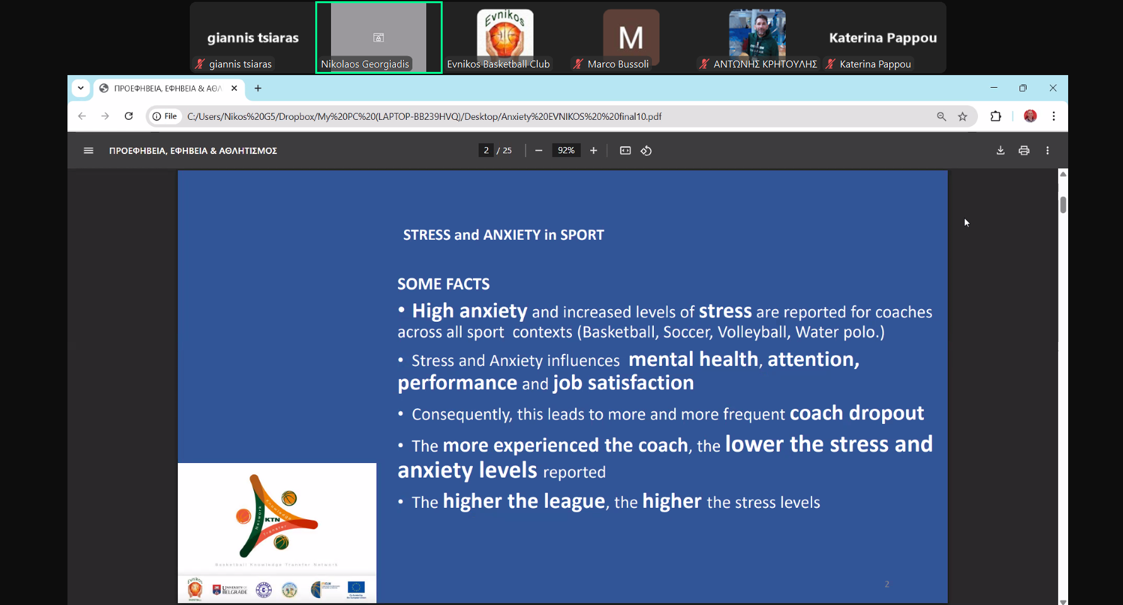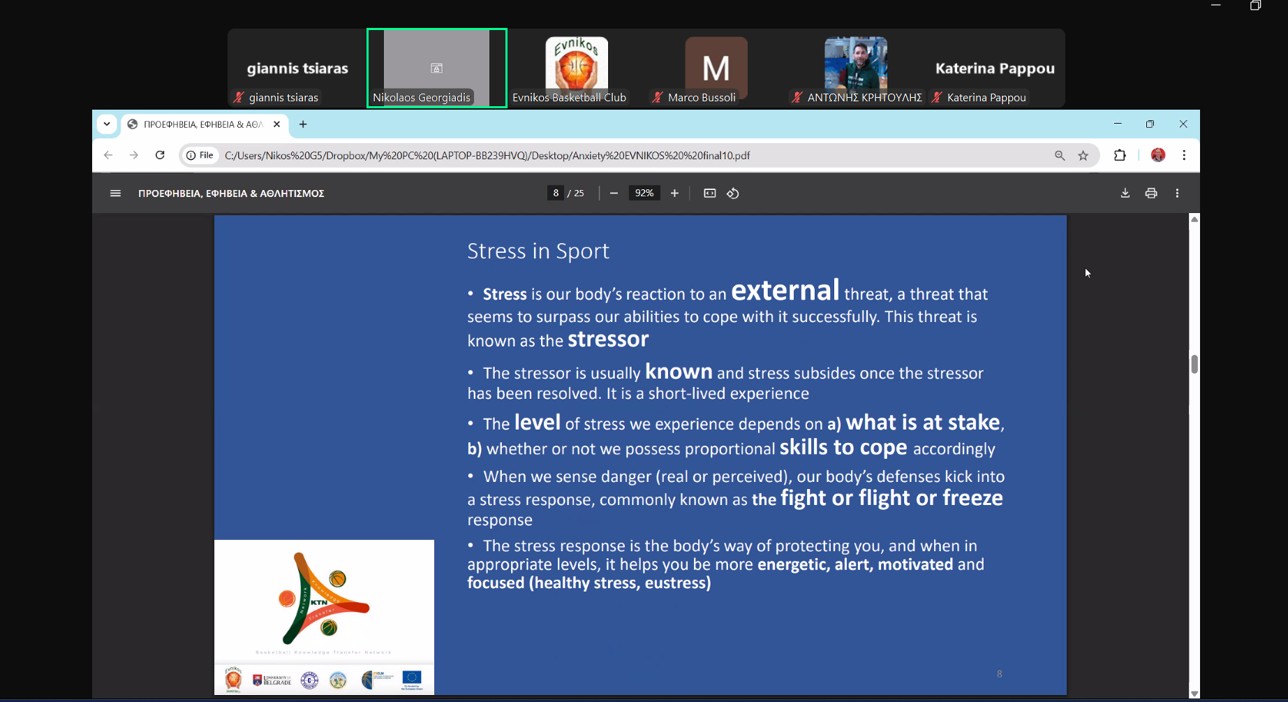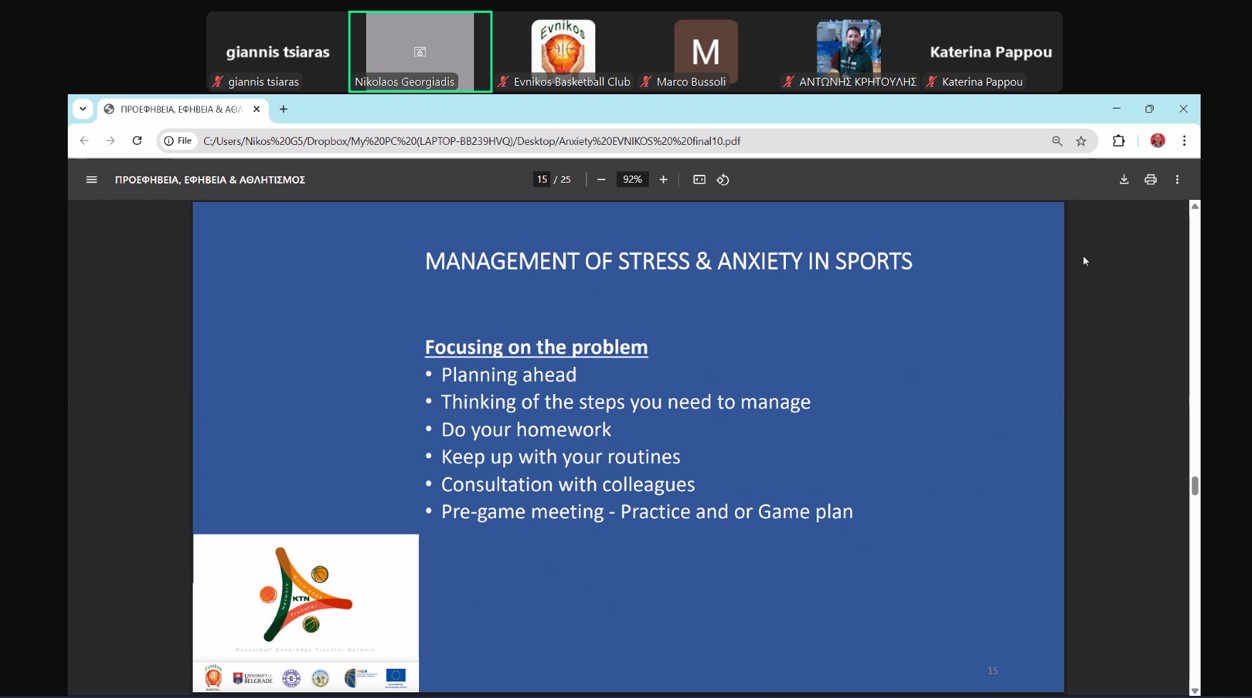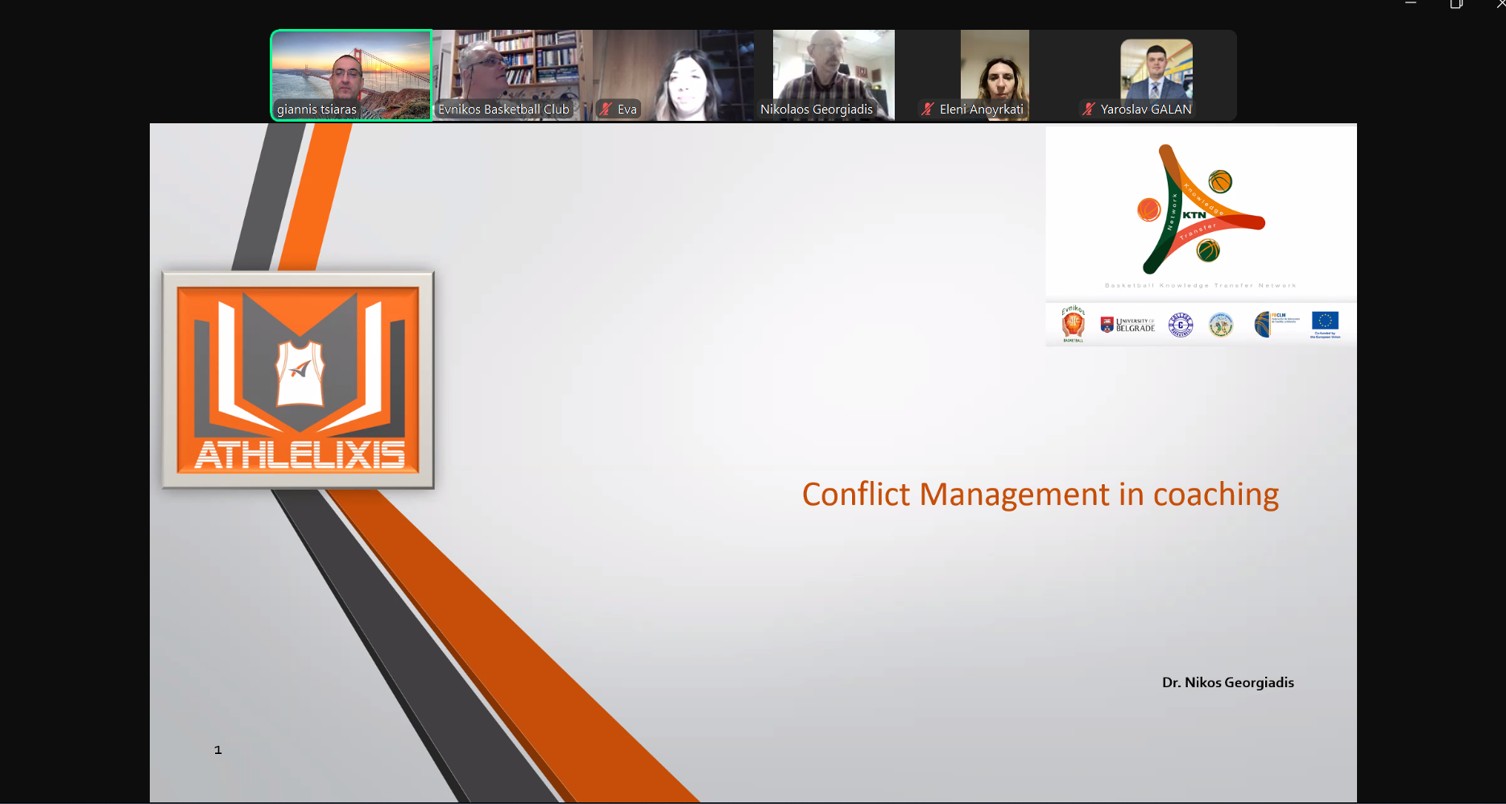Introduction to Begaviour related matters
As part of the knowledge transfer and education activities within the Basketball-KTNproject, EVNIKOS Sports Club organized a two-part seminar on April 4 and 7, 2025, dedicated to one of the most important aspects of modern sport — the psychological dimension of performance. The sessions addressed how conflict, stress, and anxiety influence athletes, teams, and organizations, emphasizing practical tools for prevention, resolution, and mental well-being.
The first part, Conflict in Sport – Causes, Resolution, and Psychological Perspectives, was led by a professional psychologist who analyzed the interpersonal and emotional dynamicsthat create tension in sport. Participants examined the causes of conflict — competition pressure, communication issues, role confusion, personal stress, or value clashes — and explored how such tensions develop and escalate. A simple framework helped identify types of conflict (interpersonal, intra-team, or coach–athlete) and introduced practical techniques such as emotional mapping, root cause analysis, and structured dialogue.
Strategies for conflict resolution were also discussed, highlighting active listening, empathy, mediation, and clear communication protocols. Creating psychologically safe environments, where people can voice concerns without fear, was presented as essential to team cohesion. Real-life examples showed that when addressed constructively, conflict can foster growth, understanding, and stronger relationships.
The second part, Stress and Anxiety in Sport – Understanding, Managing, and Supporting Mental Well-Being, explored the psychological pressures athletes face. Stress sources such as results, injuries, fear of failure, and public expectations were analyzed, along with the difference between motivational stress and chronic anxiety. Participants learned to recognize early signs of distress — from sleep disruption to irritability and concentration issues — and were encouraged to maintain open communication, especially with young athletes.
Evidence-based stress management techniques were introduced, including breathing exercises, visualization, relaxation, positive self-talk, and pre-performance routines. The vital role of coaches in creating emotionally supportive environments was emphasized, helping athletes develop confidence and resilience. The session concluded with practical examples and open discussion on reducing stigma around mental health in sport.
Across both sessions, the unifying message was clear:
Conflict and stress are natural in sport — but when managed with awareness and care, they become pathways to growth rather than obstacles.
Through this initiative, EVNIKOS Sports Club and the Basketball-KTN network reaffirm their commitment to fostering emotionally healthy, ethical, and resilient sporting environments — where success is defined not only by results, but by balance, respect, and psychological well-being.



